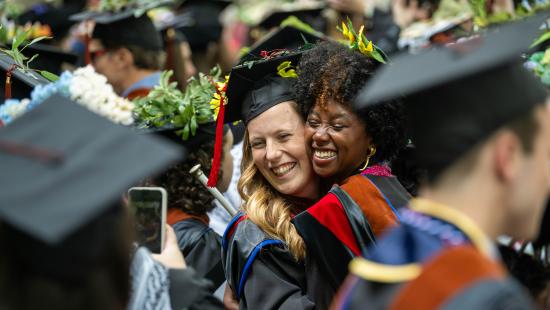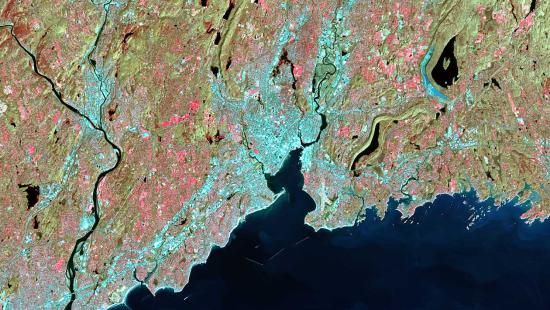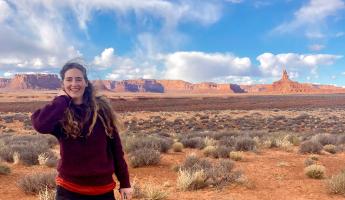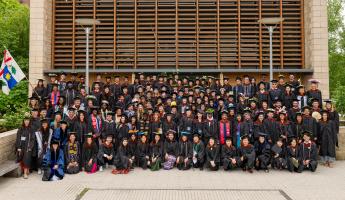

If you spotted Sangam Paudel around campus this year, chances are he was looking for birds. Paudel ’24 MEM has searched for birds around West Campus and even collected dead birds as part of his work with the Yale Bird-Friendly Building Initiative. The research, which so far has tracked more than 2,600 bird collisions on campus, is already helping to accelerate the adoption of bird-friendly building designs on Yale’s campus and the Initiative hopes other building managers and cities will follow suit.
“It’s sad, but the research could help with implementing solutions such as retrofitting windows to add contrasts into otherwise clear or reflective windows, so that birds see windows as barriers and avoid collision,” Paudel said.
It wasn’t until he came to Yale College for his undergraduate studies and took a class with Mark Ashton, Morris K. Jesup Professor of Silviculture and Forest Ecology, that Paudel developed a keen interest in the plant side of the environment.
“Sangam took my silviculture course when he was an undergraduate at Yale-NUS College. He came back two years later for a five-year master’s, making me realize how bright and enthusiastic he is as a student. His interest lies in using agroforestry as a mechanism for biodiversity conservation,” Ashton said.
After returning to Southeast Asia, Paudel pursued field research in mangrove forests in Pulau Ubin, an island off the coast of Singapore.
YSE has provided me the opportunity to dive deep into forestry and think about how we might balance economic needs with biodiversity conservation and restoration.”
He observed a disconnect between conservationists and agricultural workers in Indonesia and Malaysia where the palm oil industry is shaping the environment. Paudel said he would feel uneasy when he’d see the palm oil plantations as he flew into an Indonesian city because of the industry’s impact on deforestation and biodiversity. When he spoke with residents who lived near the palm oil plants, such as in Northern Sumatra, he found that many growers appreciated the product. They saw it as a way to escape poverty.
These encounters led him to question how to promote sustainable land use and biodiversity conservation while also addressing the economic needs of local land users.
“I asked myself what and for whom conservation was really for. Yes, there are ecosystem services, and beautiful birds almost seem to demand you protect them, but if a farmer seeks to escape poverty by working the land, how do you say no? Of course, it is more complicated, but it made me think about my conservation ethos,” Paudel said.
At YSE, he started delving into agroforestry, a more environmentally friendly form of agriculture in which trees are intentionally integrated with agricultural crops or pasture, and worked with Senior Research Scientist Florencia Montagnini on the implications the practice could have for food security and biodiversity.
“Sangam was always so incredibly fast and dedicated, working as an editor of my upcoming book on agroforestry, assisting in my new biodiversity credits project, and helping me with my websites. He was always knowledgeable, enthusiastic, ready to take on new challenges, always happy to get the job done,” Montagnini said.
After graduating, Paudel will continue his research at YSE, working with Ashton and others to study how woody vines in forests affect tree growth. He also hopes to continue research he began with classmates at YSE that focuses on shade trees in agroforestry systems across the global tropics.
“YSE has provided me the opportunity to dive deep into forestry and think about how we might balance economic needs with biodiversity conservation and restoration,” Paudel said.






